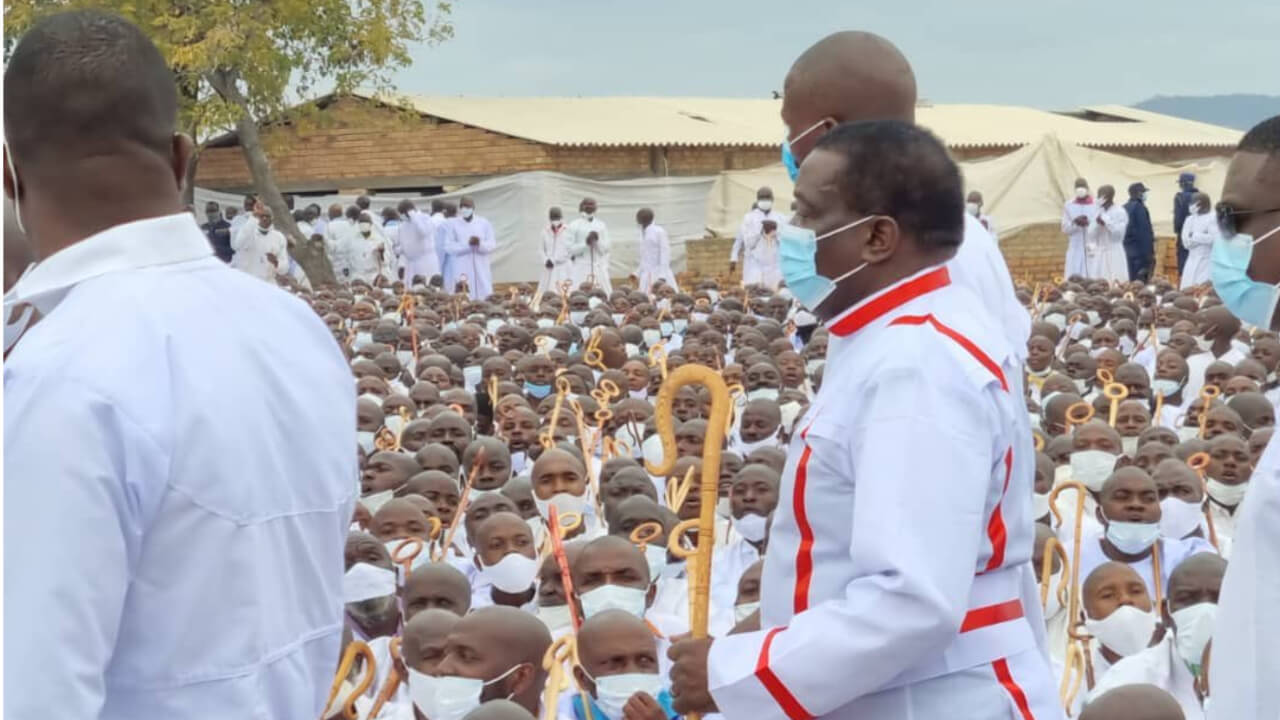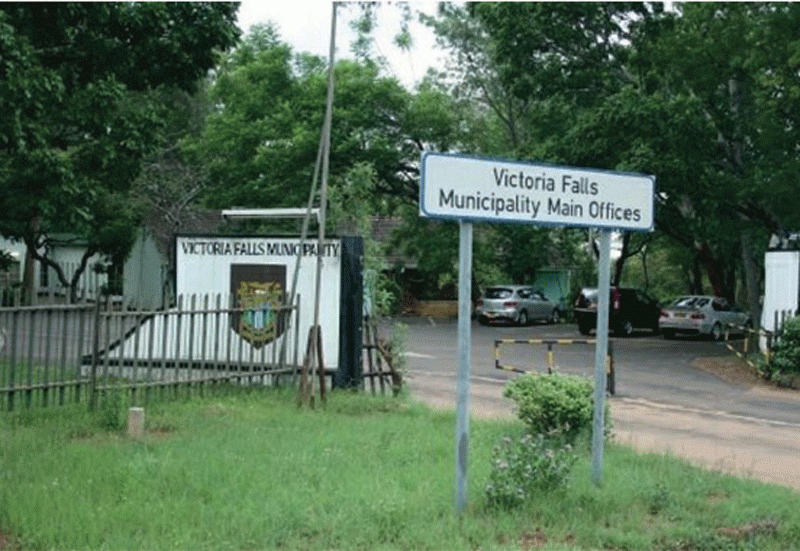
POLITICAL survival remains democratic when the leader of a country is deriving their power from the masses.
Politics remains peaceful when those in power are running a successful economy, with everyone enjoying the fruits of their sweat.
Politics becomes nasty when those in leadership fail to get answers to economic implosion, like in the case with President Emmerson Mnangagwa.
Being a president of a country becomes a mammoth task when the economy is dead, like it is in Zimbabwe.
In the end, leaders see themselves wearing white garments more like a convict at gallows waiting to be hanged.
They go desperate pretending to be churchgoers when in reality they don’t subscribe to the dictates of those churches.
They will be before a society with which they don’t share anything in common, but are only there for votes.
Is this not the abuse of the pulpit by greedy church leaders and desperate politicians?
- Chamisa under fire over US$120K donation
- Mavhunga puts DeMbare into Chibuku quarterfinals
- Pension funds bet on Cabora Bassa oilfields
- Councils defy govt fire tender directive
Keep Reading
Mnangagwa is confused deep as Zimbabwe is faced with an economic meltdown.
One of it is you cannot consume what you did not produce. Others say politics does not rule the dictates of commerce, but in Zimbabwe, our president is deaf to such point-blank theories.
Mnangagwa and his Zanu PF government wear white garments given to them by fake prophets and worldly bishops thinking that will sort out the mess in our economy.
The Zanu PF government switches on the propaganda button when it fails on its election promises, like creating over three million jobs.
It’s crystal clear that going to Johanne Marange sect, Nehemiah Mutendi’s Zion Christian Church, Paul Mwazha’s African Apostolic Church, Emmanuel Makandiwa’ United Family International Church or which ever religious group will never stop the inflation from shooting through the roof because it is caused by disregarding simple economic principles.
Zanu PF is printing money that does not have real value to finance its political shenanigans.
Chiefs are being given new cars, kraalheads are getting United States dollar allowances for them to campaign for the ruining party.
Vehicles are being bought for campaigns when hospitals don’t have ambulances and drugs. Poorly remunerated police officers and soldiers are driving posh vehicles at work, but board overcrowded Zupco buses to and from work.
They live in poverty while they are forced to serve a non-caring government.
The problem in Zimbabwe is more economic than religious, so Mnangagwa must stop stooping so low and get to work.
If what he is doing is his best, then Zanu PF must recall him from office.
He appointed a clueless Mthuli Ncube as Finance minister because he has presided over the worst economy in the history of Zimbabwe.
It is because of Ncube that Mnangagwa is now searching for economic solutions from clueless church leaders.
Political support for a leader in power is readily available if they walk the talk, and the economy remains vibrant.
That way, they are assured of getting votes. But alas, Mnangagwa has failed all those simple tests.
He is bringing back the National Youth Service programme so that he uses the poor young girls and boys for his campaigns.
Zimbabweans, this Mnangagwa-led government has nothing to offer.
It is now spending a lot of time at spirit medium shrines and poor bishops’ churches. Let’s vote it out come elections next year. Isaac Mupinyuri
Give women equal treatment THE Informal Economy Women’s Hub (INEWOH) notes recent Press reports pertaining to funding for women’s projects.
The report quotes a member of a certain political party chastising fellow members for not applying for loans with the Zimbabwe Women’s Bank (ZWB) in Zvimba district, Mashonaland West province.
The most worrisome aspect of this report is that the utterances were made at a political gathering.
Many initiatives in Zimbabwe have often failed owing to political interference, and we as an organisation fear that the ZWB facility will collapse owing to undue political interference and non-performing loans.
Zimbabweans still have fresh memories of the collapse of many financial institutions owing to the same reasons and would not want the same fate to befall an institution whose founding principle was to ensure the financial inclusion of women at concessionary rates.
Women make up over 65% of the workforce in the informal economy, but are far outstripped by their male counterparts when it comes to earnings. In our everyday interactions countrywide as INEWOH, a number of women have expressed the desire to want to be their own employers and grow their business endeavours, but face challenges in raising capital, moreso in the wake of the COVID-19 pandemic where they did not receive any form of social protection.
We appeal for all women to be given equal treatment when adjudication of such facilities is availed, given the fact that this is taxpayers money, and it is the least that the government can do in the absence of social safety nets.
As INEWOH, we will continue to build the capacities of our members to demand transparency and accountability in informal economy governance at all levels. INEWOH
Why is Zim starving?
LONG-STANDING financial troubles and drought in Zimbabwe have pushed millions to the brink of starvation.
Government has declared a state of disaster as months of drought have exacerbated a national crisis rooted in decades of mismanagement under long-time leader Robert Mugabe.
More than five million people, roughly one-third of the population, are in need of food aid, according to the World Food Programme.
President Emmerson Mnangagwa and the United Nations have made a broad appeal for international assistance, but analysts say that Zimbabwe is now at a breaking point, and the main opposition party called for a nationwide strike to take place Friday.
Drought has hit as the country’s economic woes — hyperinflation and cash shortages foremost among them — have deepened. The inflation rate stood last month at around 175%, the highest in a decade, and the Finance ministry has since said it will not release inflation statistics in the coming months. Prices of staple foods, such as bread and cooking oil, have risen by as much as five times over recent months. Medical supplies are becoming more scarce, and some people are forgoing medicines or treatment because of high costs.
Water scarcity has led to crop failures, pushing food insecurity to new highs, and raises the risk of waterborne diseases such as cholera spreading.
Government is distributing food to Zimbabweans in cities for the first time. As the output of a major hydroelectric plant has dwindled, the State power utility has imposed rolling blackouts lasting up to 18 hours per day.
But how did Zimbabwe get here?
Zimbabwe descended into financial calamity under the 37-year rule of the now late Robert Mugabe, who is widely accused of mismanaging the economy as he consolidated power through patronage and repression. The country’s per capita income fell by half over the decade that started in 2000.
While Mugabe was forced out in a 2017 military coup, the economic crisis has continued under Mnangagwa. Price hikes at the start of 2019 prompted protests and a violent crackdown by security forces.
In June, Mnangagwa outlawed a payment system that allowed use of the US dollar and ordered that a local quasi currency be used exclusively, causing prices to soar.
Austerity measures backed by the International Monetary Fund, including cuts to fuel subsidies and a new tax on electronic transactions, appear to have placed even more stress on Zimbabweans.
Mnangagwa has promised an economic recovery, but the United States and Europe have kept up sanctions on the country and the prospect of an international bailout remains dim.
Government has in the past imported electricity from neighbouring countries, and has signed deals for 20-year loans with China and India to boost power generation, but in the meantime, the long outages are taking a heavy toll on businesses and families.
Factories, which were previously exempt from the blackouts, have reported drastically cutting production since then, leaving industry effectively at a standstill and many workers without an income. Claire Felter










